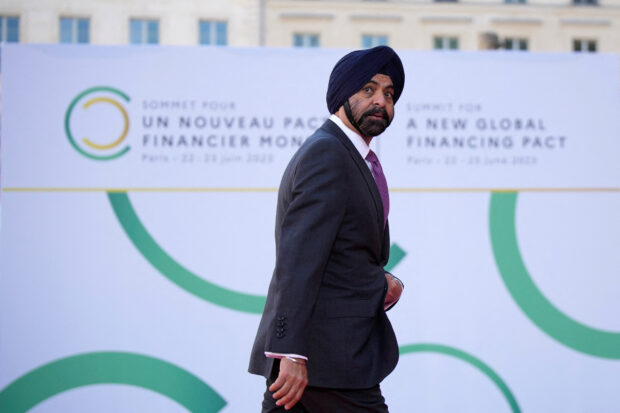GANDHINAGAR, India – The new president of the World Bank expressed concerns on Tuesday about the widening gap between wealthy and poor nations, warning that it could further exacerbate poverty in the developing world. This issue was discussed at a meeting of G20 finance ministers held in India. Many countries are still grappling with the economic fallout from both the COVID-19 pandemic and the conflict between Russia and Ukraine, which have caused global fuel and commodity prices to suffer. Furthermore, the effects of climate change have disproportionately affected the poorest countries that are least equipped to handle them.
The G20 talks took place after Russia’s decision on Monday to halt critical Ukrainian grain exports through the Black Sea, a move that drew outrage from the United Nations. The UN has warned that millions of the world’s poorest people will bear the consequences of this action. “We are living in complicated times; I have to allude to the fact that Russia yesterday withdrew from the Black Sea-Ukraine initiative — and we are here discussing how to help the vulnerable countries,” said Joachim Nagel, the German central bank chief.
Ajay Banga, the president of the World Bank, expressed his fear that the lack of progress in narrowing the global economic divide would only widen it further. “The thing that keeps me up at night is a mistrust that is quietly pulling the Global North and South apart at a time when we need to be uniting,” he said at the conference. Banga, who was appointed by US President Joe Biden, empathized with the frustrations felt by the Global South, stating that they often bear the burdens of developed nations’ prosperity.
The World Bank is working on increasing its financial capability to promote growth and employment, but it emphasizes that such growth cannot come at the expense of the environment. “The simple truth is: We cannot endure another period of emission-intensive growth,” Banga remarked. Efforts to reform multilateral lenders, like the World Bank, have the potential to unlock $200 billion over the next decade, according to the United States. However, discussions on debt restructuring for low-income nations have made little progress.
China, a major lender to stressed low-income countries, has resisted adopting a one-size-fits-all debt restructuring formula. More than half of all low-income countries are currently in or near debt distress, double the number in 2015, according to US Treasury Secretary Janet Yellen. Finance ministers from India and China also met separately to discuss their economies, trade, inflation, and the importance of creating a favorable business environment.
The G20 talks have also centered around the reform of multilateral development banks, regulations for cryptocurrencies, and facilitating access to financing for climate change mitigation and adaptation. Furthermore, an agreement on the fairer distribution of tax revenues from multinational corporations has been reached by 138 countries and is set to be implemented. Currently, these companies, especially tech firms, can easily channel profits to countries with low tax rates, even if they conduct only a small portion of their activities there.
Denial of responsibility! SamacharCentrl is an automatic aggregator of Global media. In each content, the hyperlink to the primary source is specified. All trademarks belong to their rightful owners, and all materials to their authors. For any complaint, please reach us at – [email protected]. We will take necessary action within 24 hours.

Omprakash Tiwary is a business writer who delves into the intricacies of the corporate world. With a focus on finance and economic landscape. He offers readers valuable insights into market trends, entrepreneurship, and economic developments.


